The South Florida Cancer Control Training in Disparities and Equity (South Florida C-TIDE) Program multidisciplinary program proposes to train postdoctoral fellows in multilevel determinants (e.g., biological, medical, social, psychosocial, health systems) of cancer risk, etiology, progression, cancer prevention and care delivery, health-related quality of life, and other patient-reported outcomes.
Federally funded by the NIH-NCI, the South Florida C-TIDE program is led by program co-directors, Frank Penedo, Ph.D., Associate Director, Cancer Survivorship & Translational Behavioral Sciences & Director, Cancer Survivorship Program, Sylvester Comprehensive Cancer Center and Erin Kobetz, Ph.D.; M.P.H., Associate Director, Population Sciences and Cancer Disparity, Sylvester Comprehensive Cancer Center & Vice Provost for Research & Scholarship, University of Miami. The primary goal of the program is to train the next generation of researchers with an exceptional training platform that supports postdoctoral fellows across the cancer control continuum as they develop independent, successful, high-impact research targeting cancer disparities and health equity.
The program supports three trainees per year and fellowships are two years in duration.
Environment
The South Florida Cancer Control Training in Disparities and Equity (South Florida C-TIDE) is an interdisciplinary T32 training program, offering an innovative approach and ideally suited research environment to train the next generation of cancer researchers in cancer disparities and multi-level determinants across the cancer control continuum. The University of Miami (UM) Miller School of Medicine (MSOM) Sylvester Comprehensive Cancer Center (Sylvester) provides renowned expertise, a robust research infrastructure, and unparalleled opportunity to address this priority in cancer research.
The program is focused on multidisciplinary training in cancer disparities and health equity would provide the necessary organization, structure, and programmatic training model with dedicated resources for the recruitment and training of qualified trainees committed to a career in cancer prevention and control with a specific focus on reducing cancer disparities and improving health equity.
Curriculum
Fellows will select from two tracks and multiple themes that address cancer disparities in a focused, yet multidisciplinary perspective, thus providing an innovative training structure to optimize success. Fellows will follow a core curriculum as well as additional activities that will vary depending on training track.
Track A: Training in multilevel determinants of cancer disparities
Track B: Training in innovative interventions to reduce cancer disparities
Goals and Objectives
Each of our two training tracks is designed to provide opportunities in a broad range of research training disciplines to our trainees that is suitable for team training and will be staffed with collaborating faculty possessing appropriate expertise and experience to support these training experiences.
Trainees will benefit from common resources including:
- Sylvester Comprehensive Cancer Center (SCCC) Seminars and Lectures
- Grant Writing Workshop, and Career Talks
- SCCC Trainee Membership, SCCC Shared Resources, SCCC Annual Retreat and SCCC Travel Awards
- Dialogues in Research Ethics, LinkedIn Learning, Calder Library
- C-TIDE Trainee Updates & Seminar Sessions
- Cancer Control Research Program Special Seminars
Mentorship
Faculty participating in this training program are drawn from 14 departments across two schools and colleges. All departments have a longstanding record and commitment to the training postdoctoral fellows.
These mentors represent a highly qualified, prolific team of investigators conducting state-of-the-art research in cancer disparities across the cancer control continuum, with areas of inquiry ranging from understanding basic mechanisms involved in health disparities to screening, early detection, treatment burden, survivorship, and end of life processes.
Each trainee will be assigned two mentors; at least one will be selected from the primary mentor list. Primary mentors are highly accomplished mid-level or senior scientists with extramural, cancer-relevant funded projects that align with the C-TIDE training program aims. Associate mentors are either junior faculty or non-funded faculty that bring excellent, unique expertise in the training areas.
A rigorous selection criterion will be used to identify candidates likely to be successful in a career as an independent investigator. Candidates must have some training and interests in behavioral sciences, social sciences, oncology, or other related sciences/disciplines (PhDs, MDs, MD/PhDs); and seek to develop an independent line of research and career focused on cancer disparities and health and equity.
Eligibility Requirements
- Citizens/noncitizen nationals of the United States or individuals who have been lawfully admitted for permanent residence at the time of appointment.
- Completion of terminal degree within 2 years of appointment in Behavioral Sciences, Oncology, or other related discipline (PhD, MD, DO, MD/PhD)
- Candidates must be available for a 12‐month appointment and agree to undertake a minimum of two years of research, research training, or comparable experiences from the time of appointment.
- Those who have not had previous NRSA or T32 support.
Application Requirements
- Application Form and Data Sheet
- CV in UM Format
- Research & Interest Goals (1-2 pages)
- Three recommendation letters
Please submit your application to:
The South Florida Cancer Control Training in Disparities and Equity Program
Office of Education & Training
Sylvester Comprehensive Cancer Center
Email: SFLC-TIDE@miami.edu
Current Fellows
2023-2025
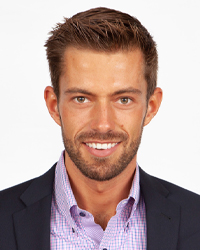
Projects:
1. Evaluating the impact of genetic ancestry of breast cancer outcomes and response to neoadjuvant chemotherapy
2. Investigation into how physical environmental exposures impact breast cancer presentation and outcomes
Mentor(s): Neha Goel, M.D. and Erin Kobetz, Ph.D., M.P.H.
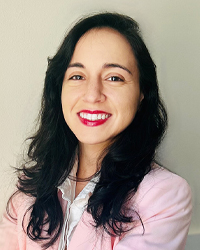
Project: Intersection between epidemiology and cancer survivorship with a focus on disparities among special populations, particularly patients with gynecological malignancies and oncofertility needs, patients with metastatic disease, and children and adolescents and young adults (AYAs) with cancer.
Mentor(s): Patricia I. Moreno, Ph.D. and Frank J. Penedo, Ph.D.
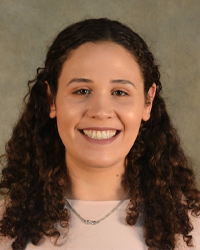
Project: Improving access to high-quality care along the cancer continuum with a focus on structural drivers of health and healthcare inequalities.
Mentor: Erin Kobetz, Ph.D., M.P.H.
2022-2024
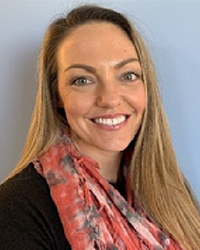
Project: Development and implementation of evidence-based interventions to improve patient and system level outcomes within the cancer domain.
Mentor(s): Frank Penedo, Ph.D.; Olveen Carasquillo, M.D., M.P.H.
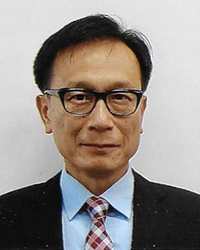
Project: Applications of geospatial technologies and artificial intelligence for cancer control research
Mentor(s): Erin Kobetz, Ph.D., M.P.H.; Ray Balise, Ph.D.
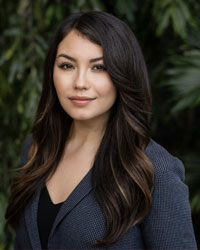
Project: Lifestyle medicine for cancer survivors during and after treatment with an emphasis on advancing cancer health disparities
Mentor: Tracy Crane, Ph.D.
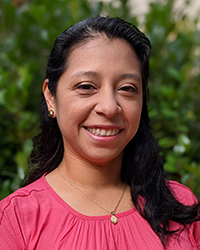
Project: Understanding the impact of psychosocial, cultural, and biobehavioral factors on health-related quality of life and health outcomes in Hispanic cancer survivors
Mentor(s): Frank Penedo, Ph.D.; Sara St. George, Ph.D.
2021-2023

Project: Social and structural determinants of cancer preventive behaviors and disparities
Mentor(s): Erin Kobetz, Ph.D., M.P.H.; Zinzi Baily, Ph.D.
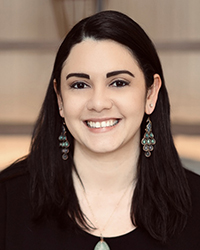
Project: Development and validation of psychometrically-sound, valid, and reliable psychological measures for cancer patients and cancer survivors using robust statistical approaches; and (2) identification of modifiable factors (e.g., distress tolerance) that can be targeted through transdiagnostic interventions to address the neurocognitive impact of cancer and cancer-related treatments.
Mentor(s): Michael Antoni, Ph.D.; Maria M. Llabra, Ph.D., Frank Penedo, Ph.D.
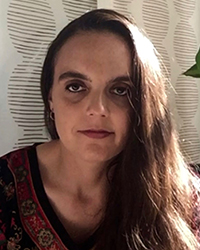
Project: Couples coping with results of a diagnostic biopsy for breast or colorectal cancer
Mentor(s): Frank Penedo, Ph.D.; Patricia Moreno, Ph.D.
South Florida C-TIDE
Faculty Mentors
Primary Mentors
| Name | Primary Department |
|---|---|
| Maria Abreu, M.D. | Professor, Department of Medicine |
| Michael Antoni, Ph.D. | Professor, Department of Psychology |
| Bonnie Blomberg, Ph.D. | Professor, Department of Microbiology and Immunology |
| Kerry Burnstein, Ph.D. | Professor Department of Molecular and Cellular Pharmacology |
| Olveen Carrasquillo, M.D., M.P.H | Professor, Departments of Medicine and Public Health Sciences |
| Xi (Steven) Chen, Ph.D. | Associate Professor, Department of Public Health Sciences |
| Tracy E. Crane, Ph.D., R.D.N. | Associate Professor, Department of Medicine |
| Wael El-Rifai, M.D., Ph.D. | Professor, Department of Surgery |
| Maria E. Figueroa, M.D. | Professor, Department of Public Health Sciences |
| Neha Goel, M.D. | Associate Professor, Department of Surgery, Division of Surgical Oncology |
| Hemant Ishwaran, Ph.D. | Professor, Department of Public Health Sciences |
| Youngmee Kim, Ph.D. | Professor, Department of Psychology |
| Erin Kobetz, Ph.D., M.P.H. | Professor, Departments of Medicine and Public Health Sciences |
| Nipun Merchant, M.D. | Professor, Department of Surgery |
| Stephen Nimer, M.D. | Professor, Department of Medicine |
| Frank Penedo, Ph.D. | Professor, Departments of Psychology and Medicine |
| Guillermo Prado, Ph.D. | Professor, Department of Public Health Sciences |
| Juan C. Ramos, M.D. | Associate Professor, Department of Medicine |
| Sandra Rieger, Ph.D. | Associate Professor, Department of Biology |
| Neil Schneiderman, Ph.D. | Professor, Department of Psychology |
| Emmanuel Thomas, M.D., Ph.D., FAASLD | Associate Professor, Department of Pathology & Laboratory Medicine |
| Xiangxi Xu, Ph.D. | Professor, Department of Cell Biology |
| Stephan L. Zuchner, M.D., Ph.D. | Professor, Department of Human Genetics |
Associate Mentors
| Name | Primary Department |
|---|---|
| Raymond Balise, Ph.D. | Research Assistant Professor, Department of Public Health Sciences |
| Alberto J. Caban-Martinez, Ph.D., D.O., M.P.H. | Associate Professor, Department of Public Health Sciences |
| Luisa Cimmino, Ph.D. | Professor, Department of Microbiology and Immunology |
| Sophia George, Ph.D. | Associate Professor, Department of Obstetrics & Gynecology |
| Aaron Heller, Ph.D. | Associate Professor, Department of Psychology |
| Jennifer Hu, Ph.D. | Professor, Department of Public Health Sciences |
| Patricia Jones, M.D. | Associate Professor, Department of Medicine |
| Robert Kirsner, M.D., Ph.D. | Professor, Department of Dermatology & Cutaneous Surgery |
| Sabita Roy, Ph.D. | Professor, Department of Surgery |
| Natasha Schaefer Solle, Ph.D. | Assistant Professor, Department of Medicine |
| Sara St. George, Ph.D. | Assistant Professor, Department of Public Health Sciences |